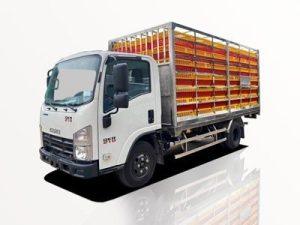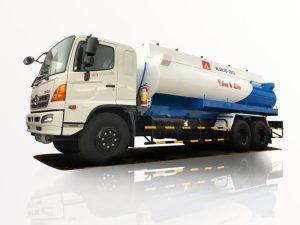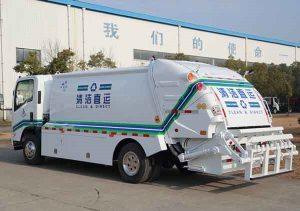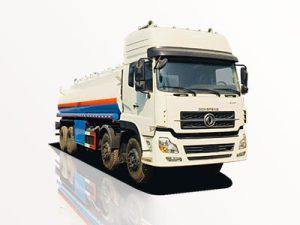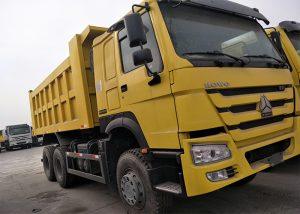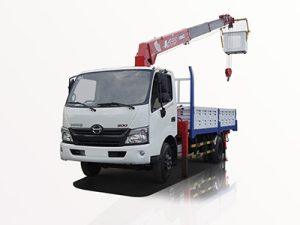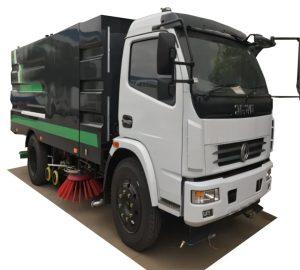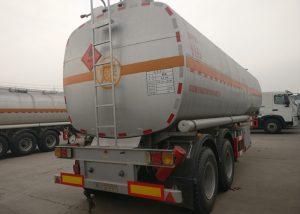Monday to Saturday - 8:00 -17:30
Potable Water Trucks for Sale: Your Comprehensive Buying Guide
In recent years, the demand for portable water trucks has significantly increased due to various factors such as construction projects, agricultural needs, and emergency responses. For businesses and individuals seeking reliable solutions to transport potable water, understanding the characteristics, specifications, and options available on the market is essential. This article explores the ins and outs of potable water trucks, their various uses, purchasing tips, and much more.
What are Potable Water Trucks?
Potable water trucks are specialized vehicles designed for transporting clean drinking water. These trucks can range from small tankers carrying a few hundred gallons to large vehicles that can hold thousands. Unlike regular water trucks, potable water trucks are built and registered to meet specific health and safety standards to ensure the water remains safe for human consumption.
Key Features of Potable Water Trucks
- Tank Material: Typically made from stainless steel, fiberglass, or polyethylene, ensuring the water remains uncontaminated.
- Tank Size: Options vary significantly, accommodating anywhere from 500 to 10,000 gallons.
- Pump System: Most include a pump for efficient loading and unloading of water.
- Filtration Systems: Some trucks come equipped with filtration systems to ensure water purity.
- Valves and Fittings: Designed for easy connection to water sources and discharge outlets.
Common Uses for Potable Water Trucks
Potable water trucks serve a variety of purposes across different sectors:
1. Construction Sites
Construction companies utilize potable water trucks to provide water for site services, such as dust suppression, concrete mixing, and worker hydration.
2. Agricultural Applications
Farmers and agribusinesses may need potable water trucks for irrigation or supplying water to livestock, especially in remote areas where water access is limited.
3. Emergency Relief Services
During disasters or emergencies, these trucks are crucial for delivering safe drinking water to affected areas, ensuring communities have access to potable water in a crisis.
4. Special Events
Festivals, concerts, and other large gatherings often require potable water trucks to supply water for attendees, ensuring everyone has access to clean drinking water.
5. Municipal Water Services
Some municipalities utilize potable water trucks for providing water in areas with limited infrastructure or during maintenance shutdowns in existing water supply systems.
Choosing the Right Potable Water Truck
Selecting the right potable water truck involves a multitude of factors:
1. Determine Your Needs
Understanding the intended use helps narrow down your choices. Assess factors like frequency of use, water volume needed, and specific applications.
2. Consider Tank Size
Choose a tank size that fits your requirements. For smaller tasks, a truck with a 1,000-gallon tank might suffice, while larger constructions might need a truck capable of carrying over 5,000 gallons.
3. Check Material Quality
The tank must meet health standards. Stainless steel is popular for its durability and safety, but fiberglass and polyethylene can also be viable options.
4. Evaluate Systems and Accessories
Look for trucks equipped with reliable pumps and filtration systems. These features facilitate better operation and enhance water quality.
Buying New vs. Used Potable Water Trucks
When deciding between buying new or used potable water trucks, consider the following:
New Trucks
- Often come with warranties.
- Can be customized to specific needs.
- Latest technology and features.
Used Trucks
- More affordable; ideal for budget-conscious buyers.
- Potentially fewer issues as the previous owner has already labored through initial break-in.
- Consider maintenance history before purchase.
Where to Find Potable Water Trucks for Sale
There are several places to search for potable water trucks:
1. Online Marketplaces
Websites like TruckPaper, eBay, and specialized sites for heavy machinery often have listings for both new and used potable water trucks.
2. Local Dealers
Contact local truck dealers who specialize in heavy-duty vehicles. They can often provide you with options tailored to your needs.
3. Auctions
Attend vehicle auctions where potable water trucks might be available at competitive prices.
4. Manufacturer Websites
Some manufacturers also have certified dealers or sell directly on their websites.
Cost Considerations when Purchasing Potable Water Trucks
The cost of a potable water truck varies widely based on several factors, including size, age, and condition. Here’s an estimated breakdown:
| Type | Estimated Cost |
|---|---|
| New (1,000 – 3,000 gallons) | $40,000 – $80,000 |
| New (3,000 – 5,000 gallons) | $80,000 – $120,000 |
| Used (1,000 – 3,000 gallons) | $20,000 – $50,000 |
| Used (3,000 – 5,000 gallons) | $50,000 – $70,000 |
Maintenance Tips for Potable Water Trucks
Ensuring a potable water truck operates efficiently involves regular maintenance:
Routine Checks
- Inspect the tank for any signs of corrosion or leaks.
- Check equipment like pumps and fittings for effective operation.
- Monitor the filtration system and replace filters as needed.
Cleaning the Tank
Regular cleaning helps maintain water quality. Suggested practices include:
- Flush the tank with water before each fill-up.
- Use chemical cleaning agents endorsed for potable water tanks if necessary.
Winterization
In colder climates, it’s crucial to winterize the truck to avoid freezing issues. Store the truck in a temperature-controlled environment when not in use during winter months.
FAQ Section
1. What is the difference between potable and non-potable water trucks?
Potable water trucks are specifically designed for carrying drinking water and must meet safety regulations. Non-potable water trucks carry water that is not safe for drinking.
2. How often should I service my potable water truck?
Routine maintenance checks should occur at least every six months or after significant use. Ensure to take care of any repairs immediately.
3. Can I use a non-potable water truck for transporting potable water?
It is not advisable as non-potable trucks are not constructed to meet the safety standards required for drinking water transport, potentially leading to contamination.
4. How can I ensure the water remains potable during transport?
Utilize clean storage tanks, check for leaks, always clean the tank before refilling, and consider using filtration systems if necessary.
5. What certifications should I look for in a potable water truck?
Ensure the truck complies with local and national standards for potable water transport, such as the AWWA (American Water Works Association) certification.
6. Are there financing options available for purchasing a potable water truck?
Many dealers and manufacturers offer financing plans. Exploring options such as bank loans or leasing agreements can also be beneficial.


